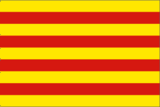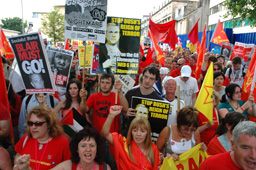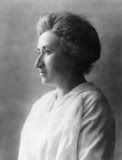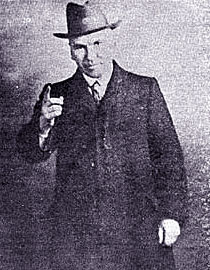As a follow up to my previous
post about Venezuela, here's an article from
Montly Review making exactly the same point as I did.
Against Party Bureaucracy:
Venezuela's PSUV and Socialism from Below by George Ciccariello-Maher In recent weeks, it has become clear that three of the major parties constituting the Chavista coalition will not immediately dissolve themselves to pave the way for the construction of the unified socialist party (PSUV) that president Hugo Chávez has demanded be created to usher in the next phase of the revolution. These "dissidents" include the Homeland for All party (PPT), the Venezuelan Communist Party (PCV), and the broad-based social-democratic party PODEMOS.
Their refusal has created a political firestorm of sorts: Ismael García, head of PODEMOS and perhaps the most openly critical of the president's proposal, refused to be forced into any "single line of thinking." He was promptly attacked by many Chavistas, and Chávez himself indirectly accused García of "raising the flags of the right." García himself has perhaps deepened the tensions on both sides by attacking the "fascist mindset" of those who would oppose pluralism within the Chavista ranks.
This falling-out has been deemed a serious crisis by many, but, while both internal and external critics of the unified party speak of an impending authoritarianism, their stance obscures the pernicious influence of party bureaucracies masquerading as "pluralism." In the end, if it blunts the influence of these bureaucracies, this "crisis" may be a blessing in disguise for the PSUV and the Revolution as a whole.
A Constituent Assembly for the PSUV?
As an example, we could consider the recently named "technical committee" whose task it will be to formulate the basic structure of the PSUV and push forward its consolidation during the next few months. This committee was named directly by the president (another authoritarian gesture, according to critics) and consists of six members: vice president Jorge Rodríguez; governor of Miranda state, former vice president and minister, and longtime Chavista heavy-hitter Diosdado Cabello; minister of education (and president's brother) Adan Chávez; militant activist and head of Venezuelan Popular Unity (UPV) Lina Ron; former nutrition minister and head of the Francisco Miranda Front (FFM) Erika Farías; and the last-minute addition of Antonia Muñoz, governor of the state of Portuguesa.
Now consider, if you will, the demand issued by PODEMOS: the election of a constituent party assembly as the first step to constructing a unified program. If such an election were held today, according to the breakdown of Chavista votes in the December presidential election, this committee would (hypothetically) look much different: it would most likely consist of three members of the Chavista MVR (the largest vote-getter by far, which has already announced its intention to dissolve to pave the way for the PSUV), one member of PODEMOS, one member of PPT, and perhaps one member of the PCV.
What does a comparison between the existing technical committee and a hypothetical election tell us? For starters, of the technical committee that Chávez named to drive the PSUV, only Diosdado Cabello raises eyebrows as a potentially opportunistic party bureaucrat. Rodríguez, a psychiatrist by trade whose father was tortured and murdered by police in 1976 (and whose sister is a member of the Socialist League which their father founded), has remained largely outside official politics, with the exception of a brief and commendable stint as head of the National Electoral Council. While Adan Chávez, Farías, and Muñoz are all MVR members, they also attest to the internal variety of the central organ of Chavismo: Muñoz, for example, is a self-described "fighting woman" who was even expelled from the party for 22 months for breaking ranks to run against official MVR candidates. (The fact that Farías is an out lesbian and that Muñoz was added to create a gender balance speaks for itself).
The naming of "Commander" Lina Ron is even more revealing. Ron is as hard-line as they come: a street activist by nature, she has shunned all offers of institutional positions in favor of mobilizing the poorest sectors of Venezuelan society to the radical wing of the Chavista movement. Formerly linked to the Bolivarian Circles, Ron defines her UPV as an organization populated by "radicals, hardliners, men and women of violence," the shock-troops of Chavismo, whose devotion to the revolution is unshakeable (UPV's logo speaks for itself: a fist punching a palm). Chávez has on many occasions distanced himself from Ron, especially around the time of the 2002 coup when his government was forced to take a decidedly moderate tack (he once described her as "uncontrollable"). Praise has not been lacking, however, as Chávez has also referred to Ron as "a soldier who deserves the respect of all Venezuelans."
The naming of Ron to the PSUV technical committee reveals one thing above all: a commitment to attack party bureaucracy. This, too, explains the cool response of organizations like PODEMOS who, according to Lina Ron herself, are only seeking to protect their privileged position within the revolution: these privileges, in the form of governorships and mayoralties, belong not to the parties but to the Revolution. Rather than recognizing this, according to Ron, PODEMOS had chosen the path of "gathering a club of friends in the Hotel Hilton, covered by the major press, to challenge my commander-in-chief." As Ron sees it, the future PSUV will finally dispense with this internal hierarchy: "the hour has come, in the united party, for everyone to enjoy equal conditions." Indeed, a full-page communiqué from UPV published recently in Últimas Noticias takes aim at PODEMOS, which it argues has "created a rupture within the Chavista bases only for the sake of the arrogance of party managers," and who as a result are weakening revolutionary unity and "doing the Empire a favor."
A similar pattern emerges when we consider the PSUV's "promotional commission," a body dedicated to the ideological development of the embryonic party (and which was also named by the president). This committee also includes some more conservative Chavistas like MVR general director Francisco Ameliach, but what is particularly notable is that nearly half of this commission have a past in guerrilla movements of one kind or another. This extends from octogenarians Guillermo García Ponce, formerly of the PCV and several armed movements and currently editor of Diario VEA to a younger generation of urban guerrillas like Ali Rodríguez Araque, who also served as head of PDVSA, and William Fariñas, formerly associated with the far-left Bandera Roja (Red Flag). While the PPT and PCV are represented, in Rodríguez Araque and current minister of popular participation (and author of the Law on Communal Councils) Davíd Velásquez, respectively, PODEMOS is conspicuously absent.
From Passive Representation to Active Construction
It is this attack on party bureaucracy that explains the tense intra-Chavista relations prevailing since December 16th, when Chávez announced the formation of the PSUV and the precondition that parties must dissolve in order to enter the new organization. The "glum faces" that Michael Lebowitz noted that night in the Teresa Carreño Theater represented the recognition that party privileges were under attack from the top as well as from the bottom. This paradoxical top-bottom alliance, one which takes as its point of departure a hostility to bureaucratized middle sectors, is perhaps best expressed in Chávez's oft-repeated argument that the votes garnered by the various parties in the past election "belong to Chávez, that is, they belong to the people." In the same speech, Chávez was explicit about the threat that the PSUV poses for party hierarchies: "For this new era we need a new political structure that is placed not at the service of parties and their distinct colors, but rather at the service of the people and the Revolution."
But how, procedurally, is it possible to circumvent party hierarchies while avoiding top-down authoritarianism? This is certainly a difficult task, but I will argue that when we compare the provisional timeline for the constitution of the PSUV with the counter-proposal offered by PODEMOS, the differences become clear. Specifically, the PSUV timeline foresees the following stages, taking place under the guidance of the technical committee: the first stage, already underway, involves the selection of 11,000 "promoters," or activists chosen for their exemplary ethical values, whose task it will be to travel the country activating, in the second stage (beginning March 24th), "socialist battalions." It will be these "promoters" and "battalions" who will carry out a census and registry of the new party in preparation for elections during the third stage (after June 24th). This election will give rise to a fourth stage, in which a constituent party assembly will formulate the PSUV's program (between August and November), which will then finally be voted upon by the new party's membership in a nationwide referendum.
How does this differ from the demands of the "dissident" Chavista parties? On the surface, the disagreement is about timing, but this conceals a more fundamental difference. PODEMOS has essentially refused to dissolve until they know the shape of the future PSUV, and are demanding that elections to a constituent assembly precede their adherence to any program. While one wonders how they plan to participate in such an election while representing their existing parties, the point is clear: the second largest Chavista party is hoping for a PSUV constitutional assembly which reflects their current electoral weight, thereby granting them a privileged position in the drafting of a party program that suits their needs. Hence PODEMOS has recently released their own proposal for the structure of the elections to the PSUV founding assembly: these should be 50% local, 30% on the state level, and 20% national. This 20% leaves more than enough space for the existing party bureaucracies to slide smoothly into the driver's seat of the new organization.
On the other hand, Chávez's timeline envisions a longer process which is more actively driven by the base: the "promoters" and "battalions" will essentially "go to the people" in the Maoist sense of the phrase, in order to educate and prepare them to construct the party themselves. This is clearer when we consider that the founding congress will be built on the representation of "socialist electoral areas," thereby privileging the election of local as opposed to national delegates. Hence while PODEMOS seeks to preserve their privilege by promoting a process of passive representation based on immediate partisan preferences, the timeline provided by Chávez is instead centered upon facilitating the active construction of the PSUV from below. It is this crucial difference that is overlooked by such observers as Margarita López Maya, who in clinging to an impoverished and representationalist view of democracy misses the fact that the best way to enable grassroots democracy is to check the power of party elites.
Despite talk of "crisis," the unwillingness of PODEMOS to embrace this process unreservedly might end up being their final gift to the revolution. If this active construction of the PSUV from the bottom up is allowed to proceed unhindered by those who would seek to immobilize the process, if the elections to the constituent party assembly can take place without the stale bureaucrats of the past, then the PSUV might be able -- if only for the time being -- to slow the creeping tide of bureaucratic petrification that threatens to hollow out the Revolution from within. That many such threats exist within the MVR as well, an organization which is already seeking a smooth infiltration into the PSUV, is yet another aspect of this danger that will need to be confronted throughout the entire process in the year ahead.

 =>
=> 




